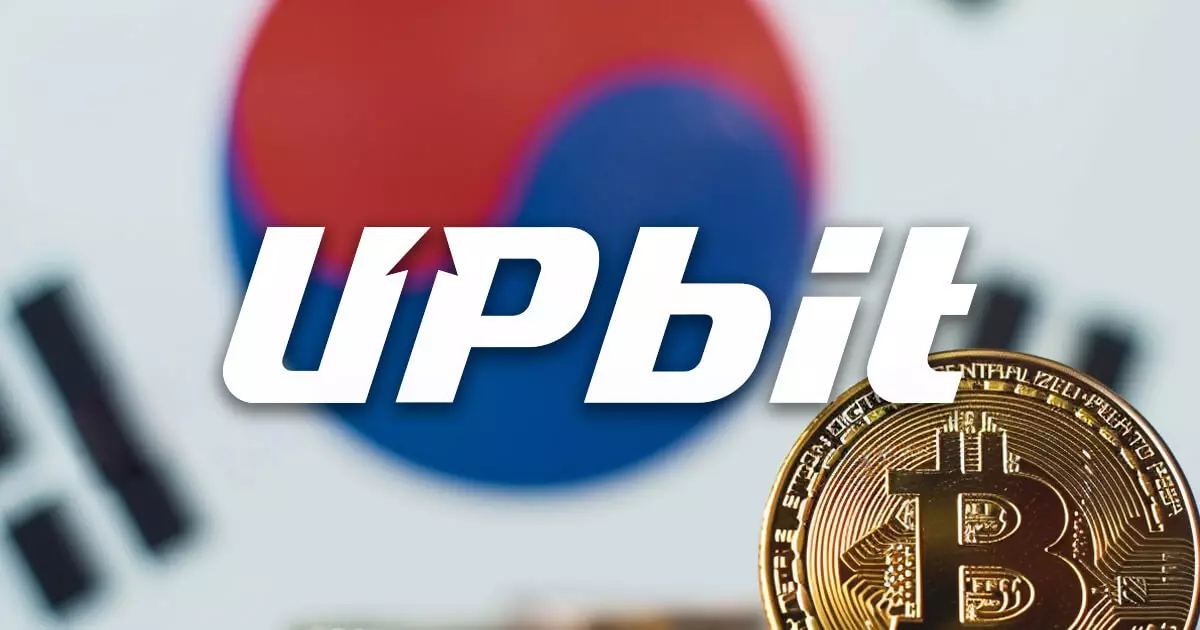South Korea’s Financial Services Commission (FSC) has initiated a critical investigation into Upbit, the country’s largest cryptocurrency exchange, amid growing concerns regarding its significant market influence. This scrutiny reflects the increasing apprehension surrounding the intertwining of major financial entities and their potential to create systemic risks. The chief of FSC, Kim Byung-hwan, highlighted the importance of understanding how reliant the virtual asset ecosystem has become on Upbit, given its dominant position within the crypto trading space.
Legislative voices have raised alarms about the implications of Upbit’s closeness to K Bank, South Korea’s pioneering digital-only bank. In particular, lawmaker Lee Kang-il pointed out that a considerable portion of K Bank’s total deposits—around 4 trillion won—originates from Upbit, constituting nearly 20% of the bank’s total holdings. Such heavy reliance raises critical questions about financial stability; a disruption at Upbit could potentially lead to catastrophic outcomes for K Bank, such as a bank run.
Moreover, Lee’s remarks highlighted a pivotal issue regarding K Bank’s enticing interest rates for Upbit users, notably the 2.1% offered on deposits. This rate has been termed unsustainable given the bank’s low-profit margins, suggesting that competitive pressures might be driving financial practices that could threaten both institutions’ stability.
The FSC’s investigation also underscores the principle of separation between finance and industry. Lee’s criticism indicates a significant concern regarding potential conflicts of interest that may arise when an exchange and a bank are so closely intertwined. This principle serves to protect the integrity of financial systems by preventing undue influence that could distort market dynamics and compromise customer trust.
In response to the unfolding situation, the FSC plans to conduct a thorough examination of K Bank’s upcoming Initial Public Offering (IPO), which seeks to raise around 984 billion won (approximately $731 million). This forthcoming IPO adds another layer of complexity to the investigation, as the scrutiny will encompass not only the relationship dynamics between Upbit and K Bank but also the readiness of K Bank to embark on a public listing without a clear resolution of these concerns.
This investigation follows a recent memorandum of understanding (MOU) signed by Upbit’s parent company, Dunamu, K Bank, and BC Card. This agreement marks a strategic effort to integrate their services and resources to foster growth in South Korea’s digital financial ecosystem. However, as stakeholders pursue innovations to bring digital finance into the mainstream, the investigation could reveal that such collaborations might inadvertently escalate the risks associated with concentrated market power.
The developments herein could significantly reshape South Korea’s financial landscape, as regulatory bodies work to ensure that innovation occurs alongside responsible financial management. This will not only involve examining present partnerships and practices but also the potential need for stricter regulations in managing the relationships between the rapidly evolving virtual asset sectors and traditional banking frameworks. As this investigation unfolds, it will serve as a critical litmus test for both the crypto market’s maturity and South Korea’s regulatory foresight.

